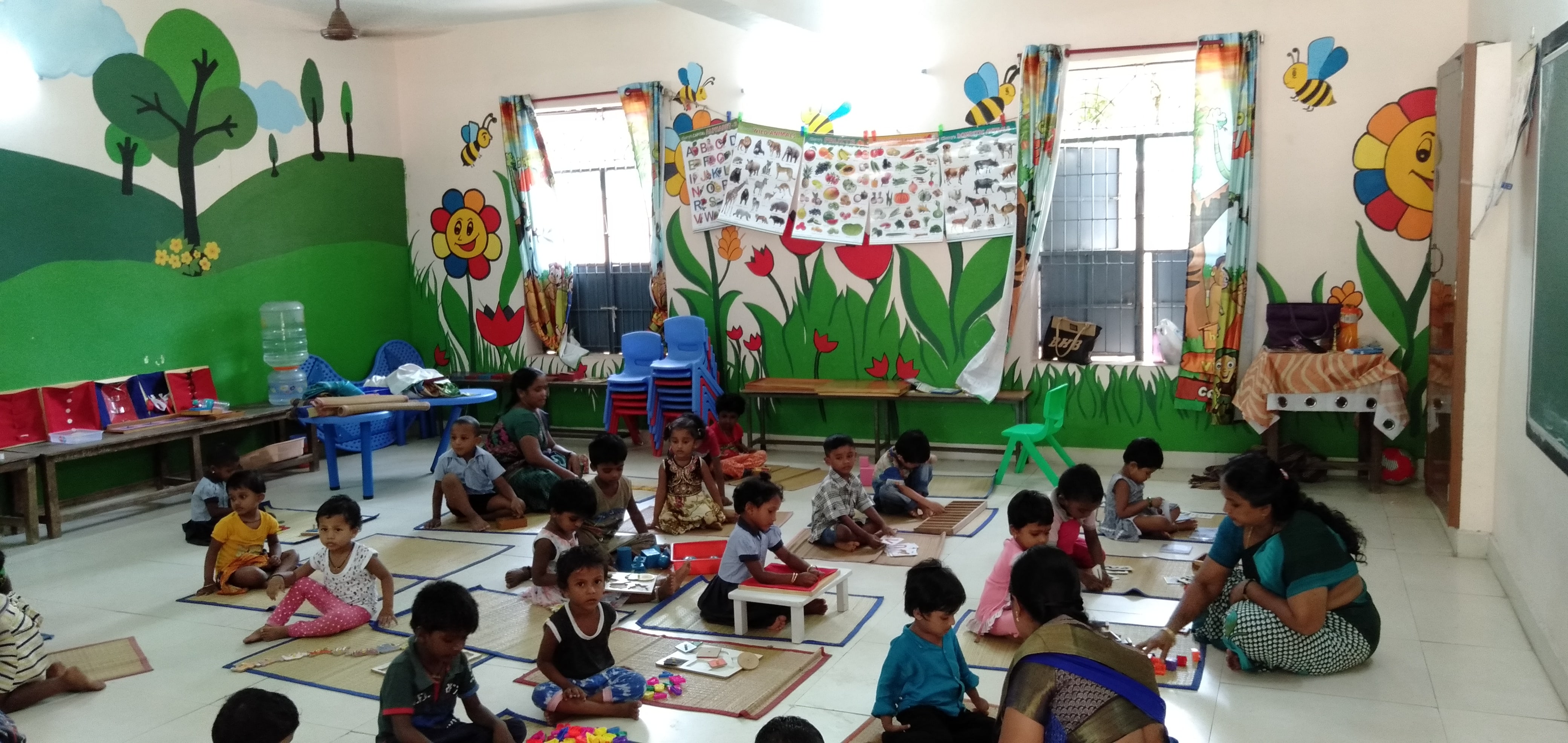
Tamil Nadu government introduces Montessori in anganwadis

The walls of a school in Egmore sports a new look. They are painted fresh with cartoon characters and birds. The students sit in a spacious classroom, playing with toys.
This, in general, reminds most of us of playschools run by private parties. But that’s not the case any more as hereafter, government schools too will have Montessori classes.
In its more than 50 years history of government schools, this is the first time the Tamil Nadu government has implemented the Montessori system of education in its schools. From this academic year, this system will be implemented.
The state has introduced Montessori in its 2,381 anganwadis, through which more than 52,000 students are expected to benefit.
The state has 54, 439 anganwadi centres in total, of which 2,381 centres are operating within high school campuses. The government has introduced Montessori pattern only in such anganwadis.
With the aim of making the State-run schools on par with private schools, the government has introduced nursery education (Pre KG, LKG and UKG) in its schools. It is to be noted that till the late 90’s, the government school students started learning English alphabets only from Class 3.
“Teaching self-care, taking care about environment cleanliness, developing social awareness and providing basic physical activities for their muscular strength are the main objectives of the Montessori system of education. When the education is also provided with food, the children becomes healthy, both physically and mentally,” says a Montessori-trained teacher working in a government school.
While, the government’s initiative is being welcomed by the parents and educationists, there are some issues which needs attention, to make this a successful model.
For instance, the above-mentioned teacher has been appointed by a Chennai-based NGO though the teacher works in a government school. And, this is what happens in most of the cases.
Despite the state having over 13,000 Montessori-trained teachers, who are waiting to be employed, the government uses surplus secondary grade teachers who are working in the middle schools.
“The decision to attach the anganwadis with the government schools is a welcome measure, because it will increase student enrolment. But using the secondary grade teachers to teach nursery children is not good,” says PK Ilamaran, state president, Tamil Nadu Teachers Association.
Many of the secondary grade teachers are working without any promotion for the last two decades. If they are promoted as graduate teachers and the backlog vacancies of graduate and post-graduate teachers are filled, the problem of ‘surplus’ will not arise, says Ilamaran.
“Making the secondary graduate teachers to teach the nursery school children is like a demotion. Though there will be no changes in the salary they receive, the agony of reduction in ranks affects them psychologically,” Ilamaran adds.
The anganwadi workers had also requested the government to provide Montessori training to them, so that they can teach the Montessori students. In this backdrop, one of the Montessori training institutes from Chennai had approached the state government saying that they were ready to provide the necessary training.
A writer and Montessori activist requesting anonymity said, it is doubtful whether the government will implement the Montessori system in both letter and spirit.
“This system of education needs a considerable investment for materials to be used in the schools. But this is an one-time investment. If the government invests, thousands of children will be benefited in the next 20 years. If a child is trained under this system, he or she can even read newspapers by the time he or she reaches Class 1 or 2,” she says.


